Chicken Coop shed essentials
When setting up a chicken coop in a shed, there are a few key elements you will want to include both inside and out. This list of chicken coop shed essentials will help you create a coop that will allow your chickens to be happy and healthy all year long.
When raising chickens, it is important to set up a home that will keep them safe, warm, and dry so they can flourish.
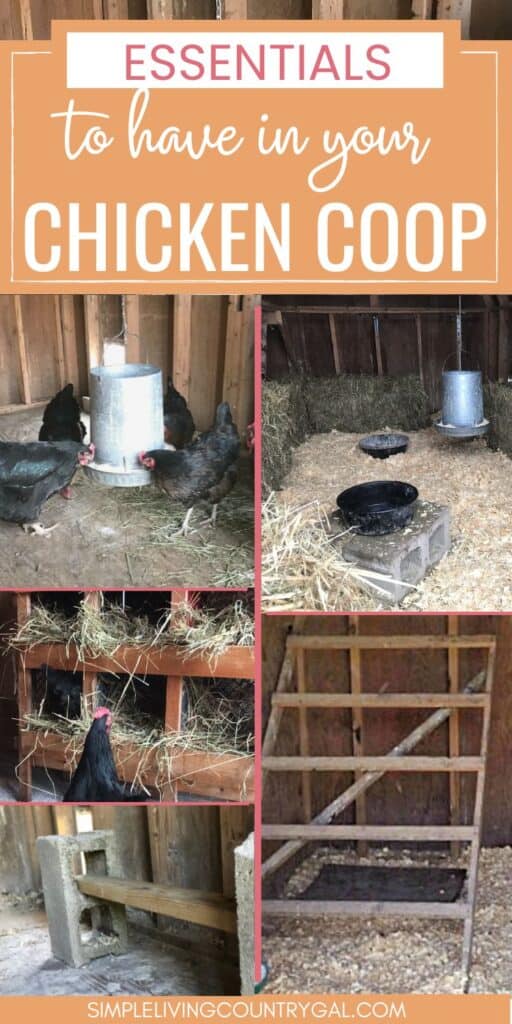
Ready to start collecting your own backyard eggs?
Building a chicken coop out of a shed is the perfect project for getting the whole family involved, plus it ensures you have access to farm-fresh eggs right in your own backyard!
But before you start shopping and renovating, there are a few essential items that need to go on your list. This article will cover all the must-haves for setting up the perfect chicken coop so you can transform that old shed into a new backyard coop your chickens will love.
Chicken Coop shed essentials
The main parts of a chicken coop shed are food, water, shelter, and protection. Knowing each part will help you decide what items to include. You will also need to take into account a few other factors:
- How much room you have – this will determine the size tool you can house comfortably inside the coop.
- How many hens you will be raising – this will determine how many items you will need for the entire flock to use without issues.
- What predators you commonly see where you live – this will determine what additional items you will want to include to keep your flock safe.
chicken feeder
Chickens love to eat often throughout the day. For that reason, continuous feeders are a great addition to have in a coop. You can make a feeder using a large clean bucket or you can purchase one that is ready to start using right away.
Over the last ten years, I have tried almost every feeder out there, and my favorite is the galvanized steel hanging feeder.
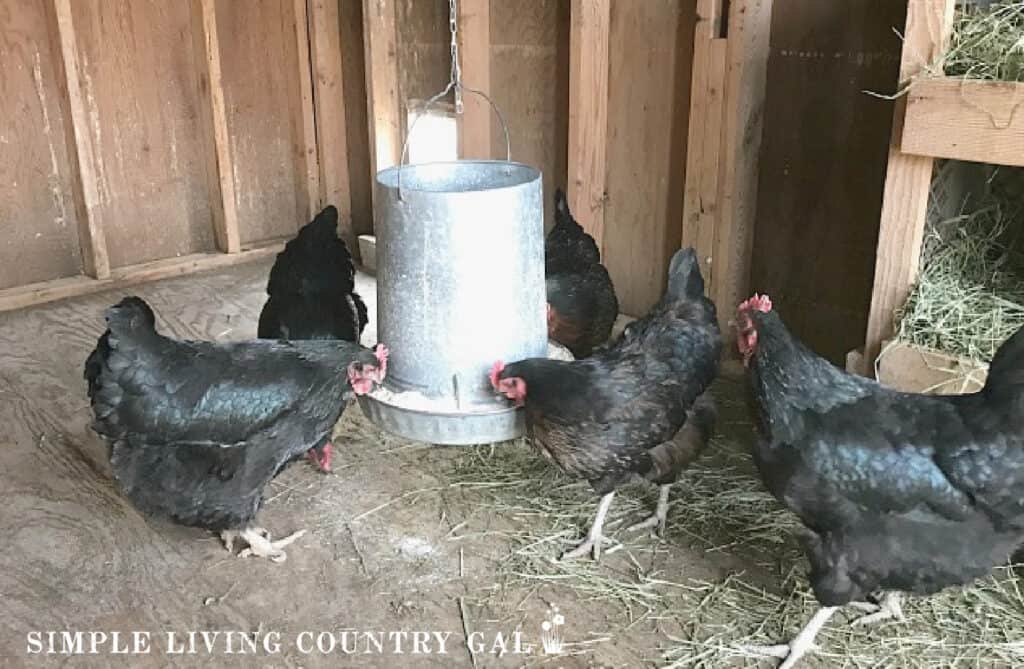
Although it is the most expensive of all the feeder options, these feeders are very durable and allow the chickens to peck away at their food without doing any damage. Another option is a plastic feeder but I have found that chickens can chip away at the plastic causing cracks in some areas.
A continuous feeder will hold quite a bit of feed ensuring it is always available for your chickens.
Harris Farms Free Range Hanging Poultry Feeder | Twist Lock Base | 10 Pound,White

Where should you put a feeder in a coop?
Continuous feeders hang from the ceiling extending it up off the floor. This will keep the feed from getting tipped over and any manure out as well. You will want to hang the feeder up off the ground far enough that your chickens can eat from it comfortably.
Hang the feeder inside the coop with enough room for your chickens to eat from any side. Be sure to have it in far enough from the door that the sun or rain will not damage the feed.
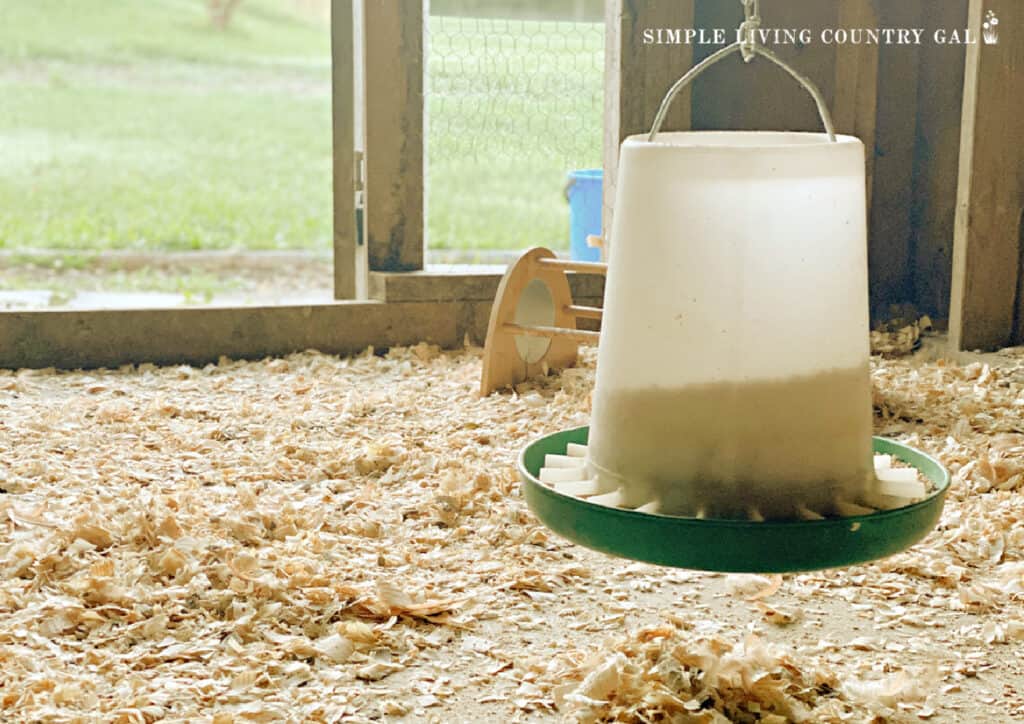
Chicken waterer
As important as food, water is essential to a chicken coop. There are many different types of waterers, and you will want to choose the material that works best for the area where you live.
Where we live winters can get pretty brutal and because of that I had a very hard time finding a chicken waterer that lasted throughout our crazy cold temperatures. I tried the plastic waterers only to have them crack halfway through from the water freezing.
I then tried the galvanized steel waterer, but after a few years, it started to rust. I finally settled on a simple rubber water bowl.
Many times in the winter, the water freezes solid. This means I have to remove chunks that can damage plastic and even metal waterers. The rubber bowl allows me to bang the ice out without any risk of damage.
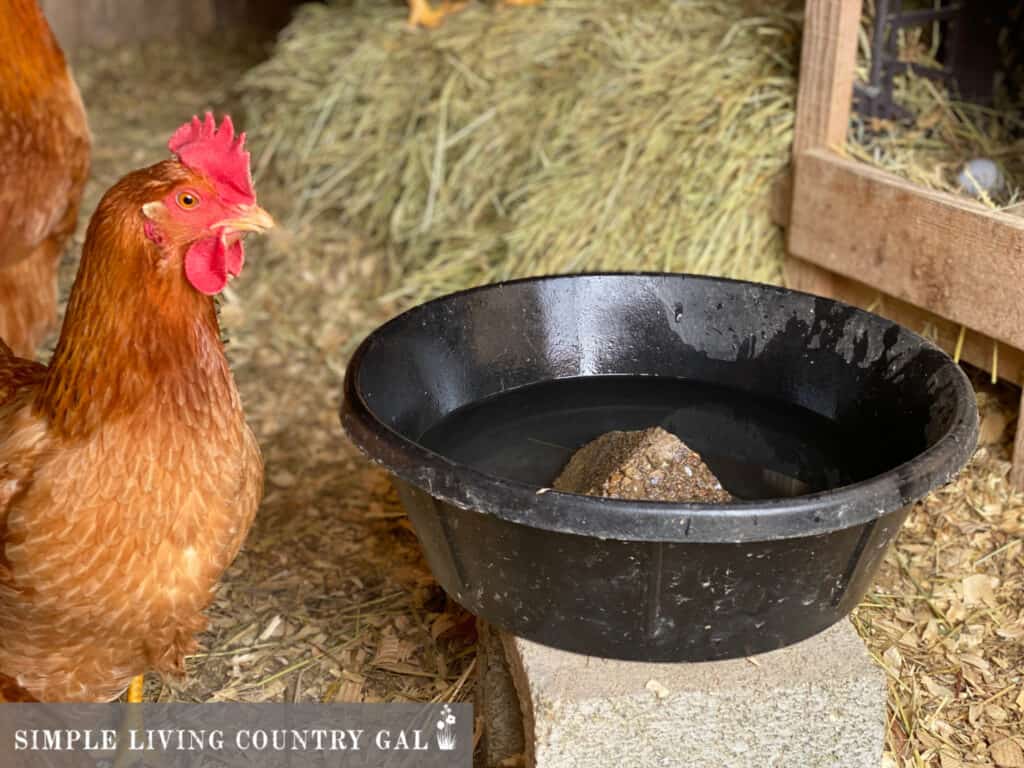
Where should you put the water in a chicken coop?
It is important to have the water dish up off the ground so that bedding and other debris does not contaminate the water.
If using a plastic or metal waterer, you can hang them from the ceiling of your chicken coop. If using a rubber bowl, you can place it on a cinder block or another platform. Another tip in using a rubber water bowl is to place a rock inside to keep the bowl from tipping over.
Chickens like to perch in the most precarious places, and this often includes the side of the water bowl. The rock helps to keep the bowl from tipping over and actually does a great job.
Harris Farms Poultry Drinker | Simple and Easy to Use for Any Size Flock | Made of BPA-Free Plastic | 6.25 Gallon, Green

Chicken Roost
Chickens have the instinct to get up off the ground once the sun starts to set. Because of this, it is important to have a good chicken roost inside your coop. You can easily make your own with scrap pieces of wood you may have lying around your property.
I also like to have a roost outside in the chicken run as well. Sometimes our hens like to roost during the day, and having an option outside is helpful. Also, in the hot summers, this outdoor roost encourages them out of the hot and stuffy coop and into the cooler fresh air.
DIY Chicken Roost Ideas
Here are a few DIY ideas you can use to set up a roost in your chicken shed coop.
1. Take two cinderblocks and stand them vertically. Slide a 2×4 through the holes quickly, creating a roost for your flock.
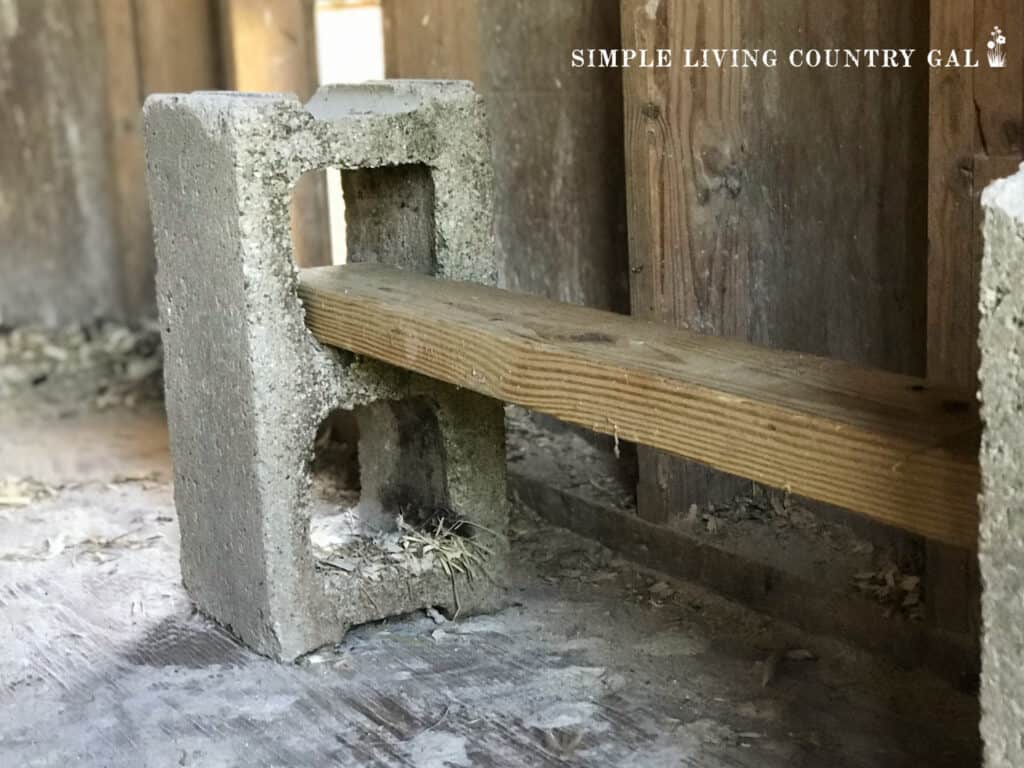
2. If your DIY skills are lacking, you can use a ladder as a roost in your coop. A small step ladder will hold 2-3 chickens, whereas a larger ladder will hold more.
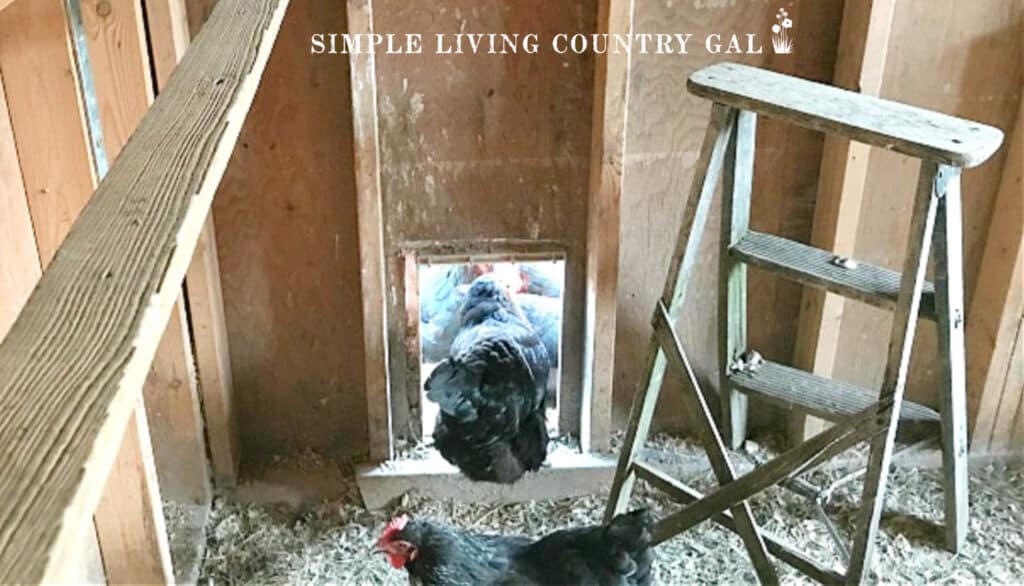
3. You can also use scrap wood to DIY a larger and wider ladder in your coop. This style will hold quite a few chickens and works great if you have a larger flock.
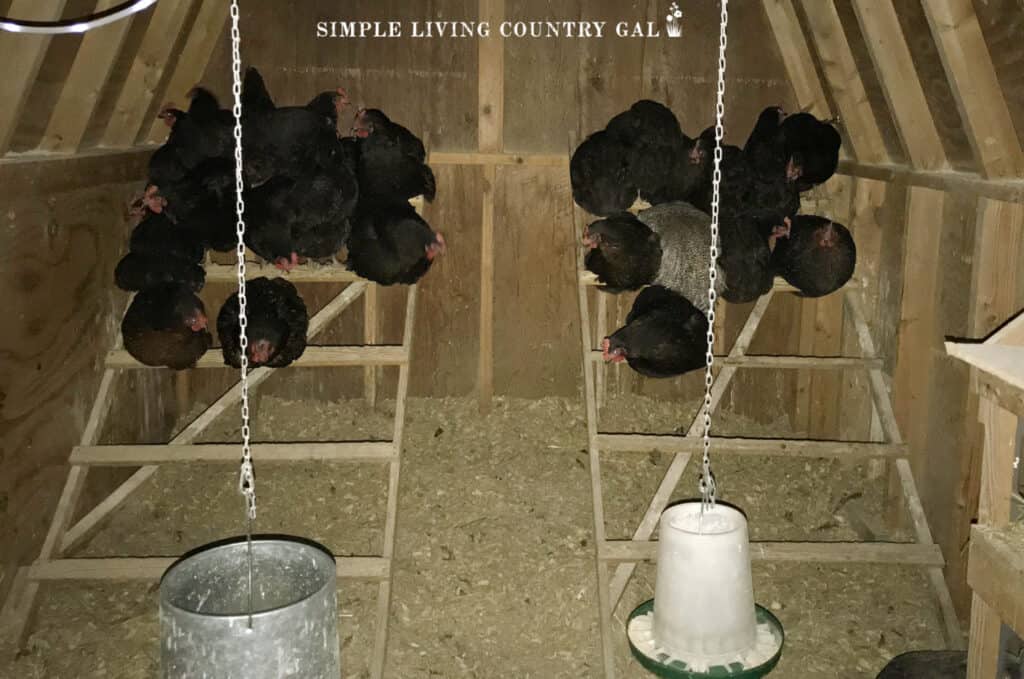
4. A bit more advanced on DIY skills but a great option if you have a small coop. This is a perimeter roost that has a long ladder for easier access for your chickens.
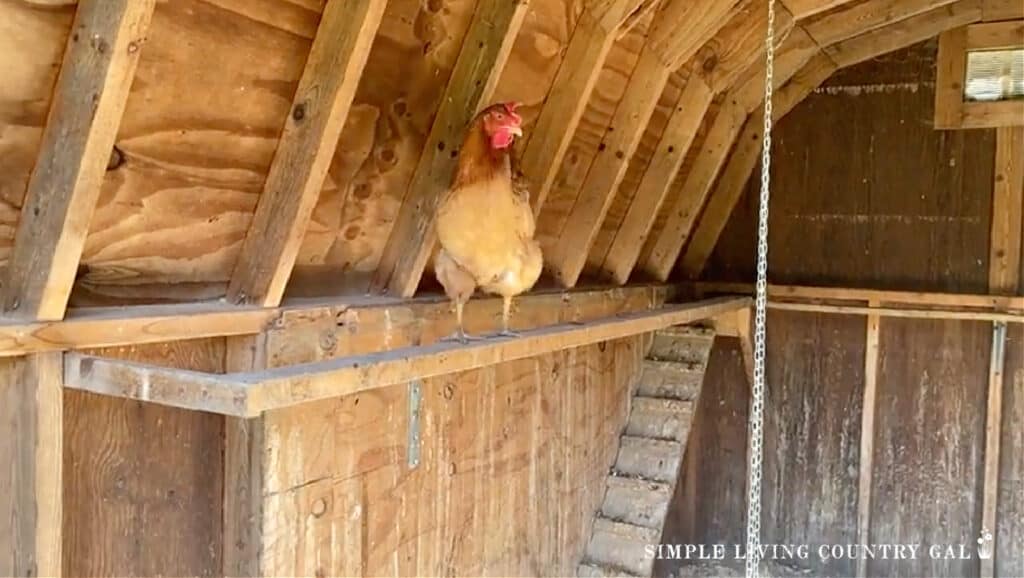
Chicken nesting boxes
The main purpose of our chickens is that they lay delicious eggs for us to enjoy just about every day.
A nesting box is essential as it gives chickens a safe place to lay their eggs without risk of damage until you are able to collect them.
Again you can purchase nesting boxes that you can use right away inside your chicken shed coop.
You can also DIY nesting boxes using supplies you already have on hand. We used old plastic milk crates as our box and built a sturdy yet light weight frame to house a set of 6 inside.
How to DIY Milk Crate Nesting Boxes
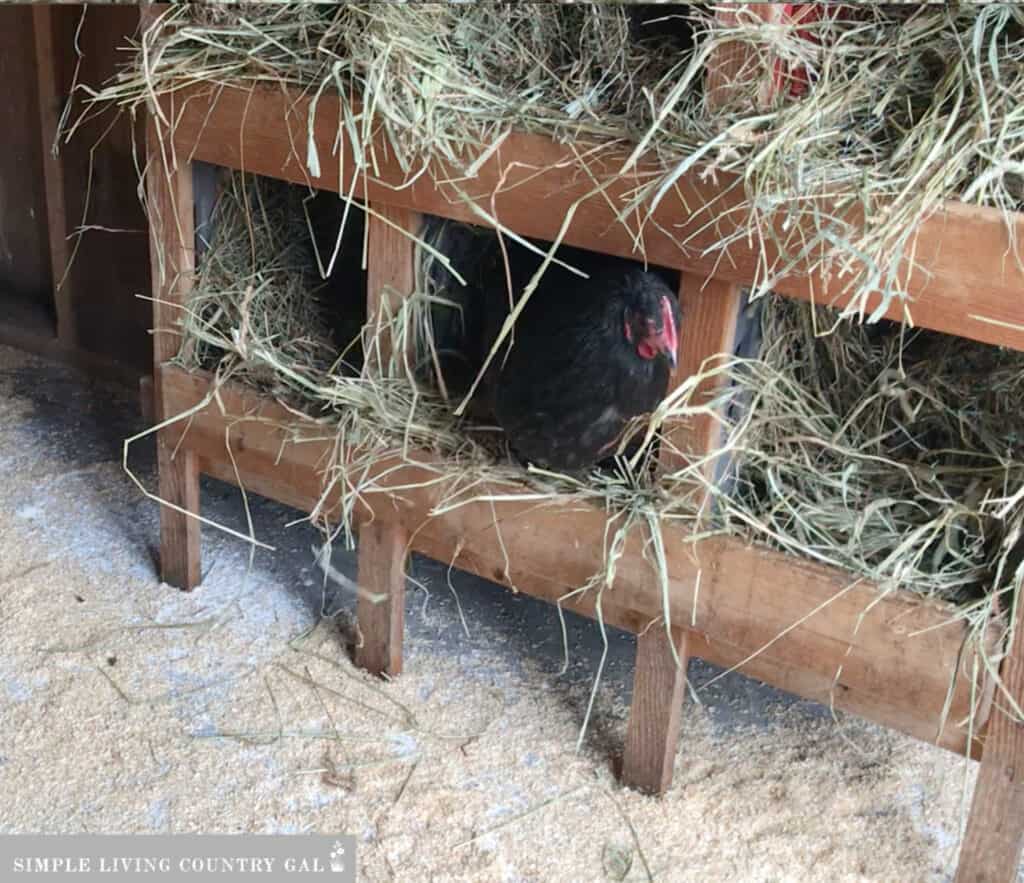
Bedding
When it comes to chickens choosing the best bedding is an important part of your coop setup. Bedding has a role to play in your coop as it keeps the ammonia smell down from your chicken’s feces and urine.
A strong and continuous smell of ammonia can cause breathing issues in chickens. By using bedding that will soak up those smells you will, in turn, create a healthier environment in your coop.
What can you use as bedding in a chicken coop?
- Sand
- Wood shavings
- Sawdust
- Hay or straw
- Natural Mulch such as shredded leaves or grass clippings
- Shredded newspaper
Wood Shavings
Over the years, I have tried different beddings, and my favorite is wood shavings. The larger pieces keep the dust down in the coop, and the wood material does a great job absorbing the moisture from the chicken’s manure and urine.
Sand
Another popular option is sand, and the best part is you can use a kitty litter scoop to remove soiled areas. If you have back issues you can use this long handled scoop making this job a really easy one!
Straw
I have tried straw, but it simply does not absorb all the moisture from the chicken’s manure. And if you have moisture, you will have smell and that is not anything you want inside of a coop.
Sawdust
And finally, another option I tried was sawdust but found it was way too dusty for our chickens. Dust can also cause issues in your hens especially if they are continuously breathing it in.
Wood shavings work the best for us and it is what we have used for the last 10 plus years.
More Chicken Health Resources:
Heating
This is a pretty controversial topic and even though I used to use heat lamps during the winter months, I no longer do. The risk of a fire is just too much and for that reason we choose not to heat the inside of a chicken coop even in the dead of winter.
Yes we live in an area that has pretty brutal winters with wind chills well below -15. But I also found that chickens are pretty resourceful and if given the chance they will adapt and might surprise you at how well they can withstand those temperatures.
By allowing your chickens to slowly acclimate to the weather changes naturally, they will grow thick fluffy down feathers that will keep them warm throughout the cold winters.
That said, you may still feel more comfortable providing at least some source of heat inside your coop. If you do not have electricity in your chicken coop, look for any solar options.
More Winter Coop Resources:
- How to Keep Your Chickens Warm Without Electricity
- How to Keep Your Eggs From Freezing in the Winter
- How to Keep Ducks Warm in the Winter
Protection
When it comes to chickens they look to be fragile especially when it comes to predators. They are not able to fly away from a predator other than in short spurts, they only have their feet and beaks to protect themselves with, and running is their first choice of action when a predator approaches.
For that reason, we like to have extra protection out by our coop to keep the predators away so they do not harm our flock.
• We have a few flashing predator lights at the entryway of our coop, and they do a great job of keeping predators away.
• We also have a motion flood light that will light up the area if a predator approaches after dark.
• Finally, we have a rooster. Roosters are great if you are looking for protection for your flock. Not only will they use everything they have to fight off a predator, but they will also squawk loud enough to warn you that something is wrong.
Read: The Best Roosters for Protection
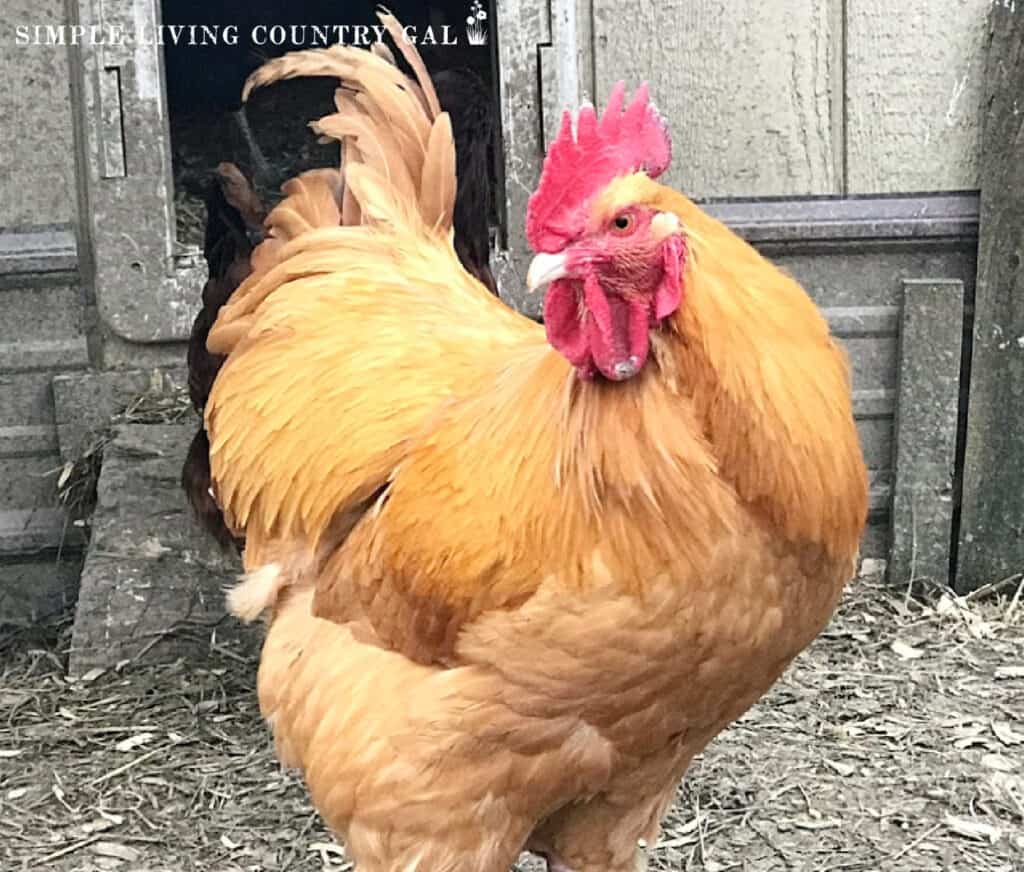
Extra Essentials for Your Chicken Coop Shed
Let’s now talk about a few things you may want to have but are not necessary to raising your chickens.
- Dust Baths – Chicken dust baths are easy to DIY, and your chickens will love them. Fill with a mixture of sand, wood ash, and food-grade diatomaceous earth. Use a wash tub or old tire to hold the ingredients so your chickens can use it for a dry bath to remove pests and other debris from their feathers.
- Automatic Coop Door – This is great to have if you can’t always be there to let your chickens out onto the run. We installed our first Solar Chicken Coop Door, and we love it. Now our chickens can go out and be closed up on time without us needing to be there.
When setting up a home for your hens, these chicken coop shed essentials will get you off on the right start. Use them to cover the basics needs of your flock and raise healthy, happy, egg laying chickens for years to come.






